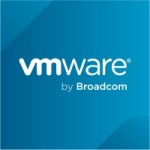What is our primary use case?
We are a service provider and this is one of the solutions that we implement for our customers. In some cases, we will do post-implementation maintenance as well.
The primary use case for ServiceNow Orchestration is for the integration of various systems. For example, if we're onboarding a new employee then we need Orchestration to help us with the integration of the HR systems, Active Directory, and multiple SAP systems where the new user is required to have access.
What is most valuable?
Employee onboarding, de-boarding, and other service-provision features make the process easier and it saves us a lot of time.
What needs improvement?
This solution should be more developer-friendly. This is what my team has been telling me.
The connectors need to be updated because certain connectors for third-party tools are not up to date, and our customers are having problems synchronizing data with some of these tools. There should be connectors to cover at least the top industry applications, and they should be easier to configure in a plug-and-play fashion.
The price of this solution needs to be a little bit lower.
Technical support could be improved by decreasing the time required to resolve issues.
For how long have I used the solution?
I do not personally work with ServiceNow Orchestration but my team has been working with it for about eight months.
What do I think about the stability of the solution?
This solution is stable, although it would definitely be better if the connectors were updated and the script in line with industry standards.
What do I think about the scalability of the solution?
Scalability is good, albeit expensive.
We have customers of all sizes but the Orchestration module for ServiceNow is better for small and medium-sized companies. The level of orchestration that is needed by enterprise-level companies is much more complicated and you might need a more mature product for that. For the small end of the scale, their requirements and needs are met by the product and it is the price that is of concern to some customers.
How are customer service and technical support?
With regard to technical support, their response time is good but most issues take some time to resolve. They have to verify the problem and they have to log in remotely to access the system and try to understand the issue. It can take longer because of time differences and multiple locations. If the time to resolve issues was better then that would be good. Overall, I would rate the customer support a seven out of ten.
Which solution did I use previously and why did I switch?
We did try a product from another vendor, temporarily, for a few integrations. However, it did not work out well so we switched to ServiceNow. We are also using BMC Remedy, and while we still have a lot to learn, I am finding it much more effective.
How was the initial setup?
I would say that the initial setup is of moderate difficulty. It's not as easy as the other ServiceNow modules, such as ITSM. At the same time, it is not very difficult to do. My comparison is only against the other modules.
The length of time required for deployment depends on the functionality that is required. The basic modules will take anywhere from four to six weeks.
What's my experience with pricing, setup cost, and licensing?
In terms of price, this solution is at the higher end of what you'll find.
What other advice do I have?
Overall, this solution is fairly decent. We are not using it for very complicated or extensive things but for basic orchestration, it is working great. The only problems we are having are related to small issues that have to do with syncing data.
My advice to anybody who is considering this solution is that the day-to-day operations are very good. For basic functions, it operates more or less out of the box and those features are good. If on the other hand, they are looking for a very extensive level of integration, then it might be a challenge with respect to the technology or even the culture.
I would rate this solution a seven out of ten.
Disclosure: My company has a business relationship with this vendor other than being a customer. partner



















